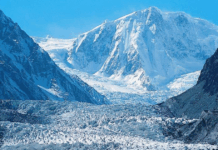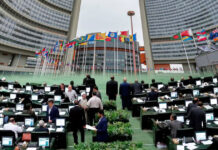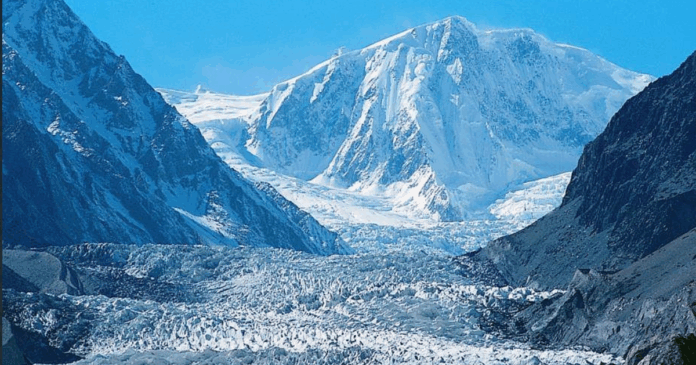The National Emergencies Operation Centre (NEOC) has issued a Glacial Lake Outburst Flood (GLOF) alert for Gilgit-Baltistan and nearby northern areas. This warning comes due to ongoing heat waves, strong monsoon currents, and a westerly wave. Together, these factors are rapidly melting glaciers.
On Wednesday, a glacier melt triggered a flash flood in the Burundubar stream near Attabad Lake, a major tourist spot. According to Rescue 1122, the floodwater entered the Luxus Hotel. At that time, many tourists were inside when the flood hit.
As a result, Rescue 1122 evacuated over 160 tourists and hotel staff using boats. The flash flood had cut off land access to the hotel. Moreover, it damaged trees and nearby land, causing panic among those stranded.
Meanwhile, in Skardu, Barga nallah flooded again due to high temperatures. Police confirmed that floodwaters entered homes and fields. Consequently, many locals suffered loss and destruction.
Khadim Hussain, Director of the Gilgit-Baltistan Environmental Protection Agency, said glacier melt disasters have become more common. He linked this to both global climate change and local causes. “The frequency of melting glacier disasters intensified in recent years,” he said.
Furthermore, Mr. Hussain explained that earlier snowfalls came in November–December and turned into ice. Now, snowfall mostly happens in February–March and doesn’t freeze properly. “With heatwaves, the snow is melting at a speed that causes flooding,” he added.
He also blamed deforestation, unplanned construction, tourism growth, and rising population. In addition, certain energy practices are making the situation worse. Altogether, these factors are speeding up glacier melt.
Another environmental expert told that many GB residents live near rivers and glaciers. Thus, when floods strike, they have very little time to escape. “They have no time to save themselves,” he noted.
He further stressed that GB glaciers provide 80% of Pakistan’s agricultural water. “This isn’t just a GB issue — it affects the whole country,” he warned.
In the end, experts criticised the GB government for lacking awareness efforts. They believe not enough is being done to reduce climate risks. Therefore, the issue continues to receive low priority from authorities.
Stay tuned to Brandsynario for the latest news and updates.



































